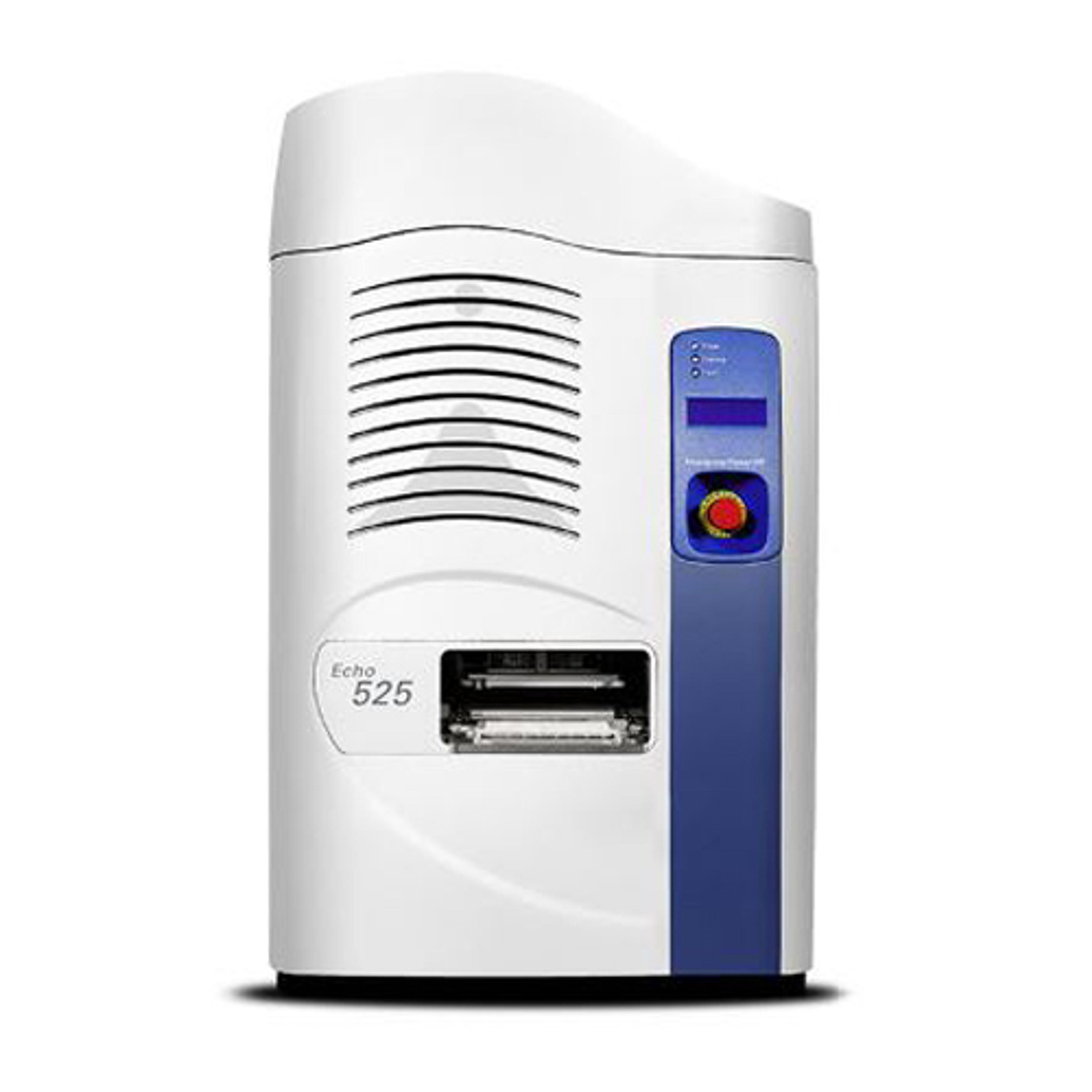Labcyte Introduces Reservoir Plate for Echo 525 Liquid Handler to Facilitate High-Throughput, Large Volume Reagent Transfers for Genomic, Proteomic and Cell-based Assays
Liquid handling source plate increases flexibility for assay assembly
28 May 2015Labcyte Inc., a company revolutionizing life science research with its patented acoustic liquid handling technology, today announced expanded capabilities for the Echo® 525 liquid handler with the introduction of the Echo qualified reservoir, a liquid handler source plate designed to enable convenient assay assembly and efficient large volume reagent transfers. The reservoir enables scientists performing genomic, proteomic and cell-based assays to reduce the use of costly reagents while achieving rapid fluid transfers.
The Echo 525 liquid handler utilizes ultrasound acoustic droplet ejection (ADE) technology to rapidly transfer liquids between microplates in nanoliter increments. Without using pins or tips, the Echo 525 liquid handler can precisely and accurately dispense 25 nanoliters per droplet, enabling assay miniaturization and improving data quality. The system requires no user calibration as it adjusts the transfer parameters for each well based on the acoustic analysis of the fluid to be transferred.
The Echo qualified reservoir is specifically designed for the Echo 525 liquid handler to improve the efficiency when transferring a single fluid to many wells in a destination plate. The product’s 6-well design enables the transfer of over 15 milliliters from a single plate. The working volume for each chamber is 2.6 mL and each chamber can contain a different fluid, making assay assembly more flexible.
“The Echo 525 liquid handler with the Echo qualified reservoir makes it simpler to dispense reagents and assemble assays for genomics, drug discovery and other applications,” said Mark Fischer-Colbrie, President and CEO of Labcyte Inc. “The ability to transfer fluids in nanoliter increments with speed and precision, and without the problems associated with tips, makes the Echo liquid handler a great fit for many life science applications. Our systems are enabling a variety of users to create workflows that use less reagent and sample and reduce costs while improving data quality. The result is that new drugs are being discovered, approved drugs are being re-purposed for other conditions, and other advances are being made in genomics and proteomics.”

